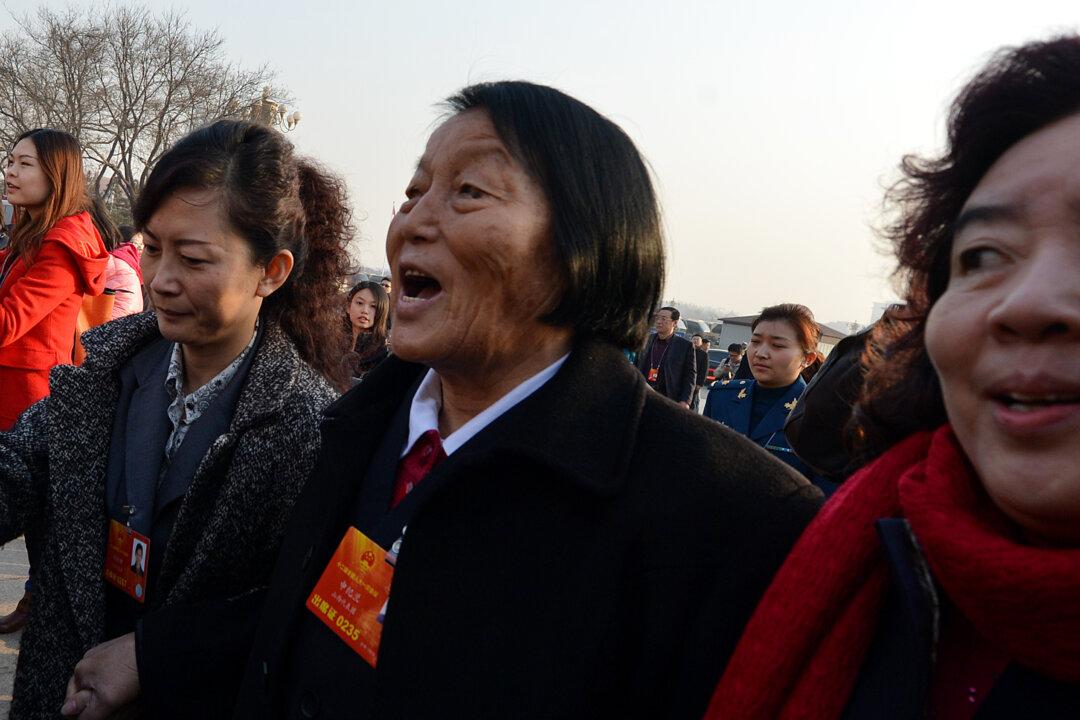Shen Jilan, China’s longest serving parliamentary representative, always votes “aye” at annual sessions of China’s congress.
“To be a people’s representative is to listen to the Party,” Shen told state media in 2010. “I have never cast a ‘no’ vote.”
The 85-year-old grandmother has been a Shanxi province peasant delegate since the very first session of the National People’s Congress in 1954. The NPC is the largely ceremonial Communist Party-controlled congress that vets and passes laws. During her tenure, Shen has always raised her hand—or pressed the green button when voting went digital—in support of all motions that the legislature has tabled.
To be a people's representative is to listen to the Party.




